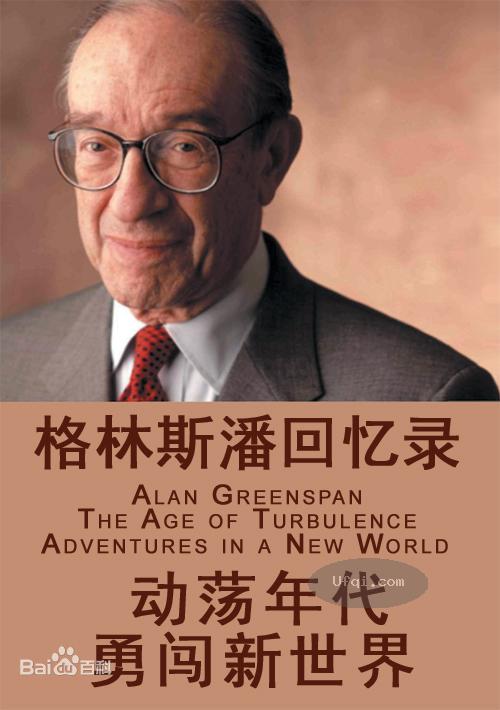


2023-05-29 , 8882 , 104 , 123
美联储主席艾伦格林斯潘回忆录--动荡年代:勇闯新世界-the age of turbulence-57
DOWNTURN
Of course, I still had the fear in the back of my mind that Congress and the White House might again go overboard on spending, or that revenues would unexpectedly flag, either of which would cause deficits to come back with a vengeance.
So in writing my testimony, I was careful to include Paul O'Neill's notion of making the tax cuts conditional. I asked Congress to consider "provisions that limit surplus-reducing actions if specified targets for the budget surplus and federal debt were not satisfied."
If chronic surpluses did not develop as forecast, then the tax cuts or newly enacted
spending increases should be curtailed.
I could not shake a conviction of many decades that the biases in our political system favor deficits.
So I made sure to end the statement on a strong note of caution: "With today's euphoria surrounding the surpluses,"
I wrote,
"it is not difficult to imagine the hard-earned fiscal restraint developed in recent years rapidly dissipating. We need to resist those policies that could readily resurrect the deficits of the past and the fiscal imbalances that followed in their wake."
My office provided the Budget Committee leaders with a copy of my remarks a day in advance, as we often did with complex testimony that had no direct bearing on the financial markets.
I was surprised on Wednesday afternoon to get a call from the committee's ranking Democrat, Kent Conrad of North Dakota.
He asked if I could stop by his office to talk. A former tax commissioner, Conrad had been in the Senate as long as I'd been chairman, and had a reputation as a fiscal conservative.
After thanking me for taking the time to see him, the senator went straight to the point. "You're going to create a feeding frenzy,"
he said.
"Why are you backing the Bush tax cut?"
He predicted that my testimony would not only ensure the passage of the White House proposals but also encourage Congress to jettison the fragile consensus on fiscal discipline it had built up over the years.
"That is not what I'm saying at all,"
I told him, pointing out that my testimony endorsed a tax cut of some kind to remove the surplus, but not necessarily the president's.
My ultimate goals were still debt reduction and zero deficits. I went over my assessment of how dramatically the outlook on the surplus had changed, explaining how productivity growth, according to virtually all analysts, seemed on a permanently higher path—or on a higher path at least for the years immediately ahead.
219
That had fundamentally altered the outlook for revenues. Finally, I agreed that it remained crucial to emphasize fiscal restraint, and volunteered to expand on the need for a safety mechanism like O'Neill's triggers if the senator would ask me about it during the Q&A.
When I left, I could see that Senator Conrad wasn't entirely satisfied with this response, but I didn't buy the idea that Congress would act on my say-so.
Politicians had never hesitated to discount or ignore my recommendations in the past as it served their convenience.



I do not recall my turning the tide when I advocated cuts in Social Security benefits. I had no intention of taking sides on whose tax cut was better; as I would tell Senator Domenici the following morning at the hearing when he asked me to endorse the Bush plan, that was a fundamentally political question.
I was an analyst, not a politician; the job would be no fun if I had to worry about the
political implications of everything I said. I was offering what I thought was a novel insight and hoped my testimony would add an important dimension to the debate.
I went back to the Fed and hadn't been at my desk for even an hour when Bob Rubin phoned.
"Kent Conrad called me,"
he said.
"He said I needed to talk to you before you testify."
Bob hadn't read my statement but Conrad had filled him in, and he told me he shared some of the senator's concerns. With a big tax cut, said Bob,
"the risk is, you lose the political mind-set of fiscal discipline."
He and I had labored for years to promote that consensus, so I asked if he knew that I was still presenting debt reduction as the ultimate goal.
"I understand that,"
he said. Then what was the problem? I asked.
"Bob, where in my testimony do you disagree?"
There was silence. Finally he replied, "The issue isn't so much what you're saying. It's how it's going to be perceived."
"I can't be in charge of people's perceptions,"
I responded wearily.
"I don't function that way. I can't function that way."
It turned out that Conrad and Rubin were right. The tax-cut testimony proved to be politically explosive. The hubbub began even before I reached Capitol Hill: copies of my statement had leaked, and USA Today that morning ran a front-page headline: "Greenspan to Back Tax Cuts."
220
Both Conrad and Domenici were quoted in the accompanying story with Domenici confirming that I was about to change my position on tax cuts "because the surplus is so big."
The hearing room itself was as full as I'd ever seen it; with twenty senators and their staffs, a wall of cameras, and a substantial crowd.
Reading my statement took nearly half an hour, and afterward I wasn't sure what to expect.
Senator Conrad started by thanking me for what he declared was a "very balanced" approach—a gracious thing to say I thought, as I hadn't changed a word after the previous day's conversation.
Then he asked,
"As I hear you testifying, you're proposing that we don't abandon fiscal discipline?"
"Absolutely, Senator," I answered, dancing the little pas de deux I'd suggested the previous day. I amplified on my views about the continued need for debt reduction and fiscal restraint.
Then it was the other senators' turn, and for the two hours that followed,
the questioning split sharply along party lines. While both sides had been proposing a tax cut, the Republicans were clearly the ones thrilled to hear me bless the idea. "I think we pretty well know where we're going,"
said Phil Gramm of Texas.
"The sooner we write the budget the better, and get on with it!"
The Democrats, in their comments, mostly voiced dismay.
"You're going to start a stampede,"
said Fritz Hollings of South Carolina. Paul Sarbanes of Maryland chimed in,
"It wouldn't be far off the mark for the press to carry the story, 'Greenspan Takes the Lid Off of Punch Bowl.'



UfqiLong
The most vivid complaint was from the longest-serving senator in American history, Bob Byrd. In his West Virginia drawl, he began,
"Now, I'm a Baptist. We have a hymnal. We have a song in our hymnal, 'The Anchor
Holds.' And I've looked at you through this economic expansion period, and I've considered you to be a great portion of the anchor.
I have listened to you over the past several years, that we need to pay down the debt, that is the basic need. I believe that you were right then and I am somewhat
stunned by the fact that the anchor seems to be wavering today."
Remarks like that are the kind people remember. As the hearing ended,
I was optimistic that the ideas I'd set forth—the risks of excessive surpluses,
the glide-path proposal, the notion of a trigger—would in the long run get attention as the legislative process proceeded.
221
But for the moment, I resigned myself to the idea that my testimony would be politically framed. I later told my wife,
"I am shocked, shocked, that there is politics on Capitol Hill."
The White House was quick to signal its pleasure—President Bush himself met with reporters that evening to call my testimony "measured and just right."
The major newspapers, too, saw the testimony as political.
"Tax cuts are inevitable and it makes sense for Mr. Greenspan to avoid disagreeing
with the new administration at this early stage,"
wrote the Financial Times. The New York Times reported that I was helping the White House in much the same way as I had supported President Clinton's
deficit-cutting initiative when he first took office in 1993:
"Just as his hedged backing of Mr. Clinton's plan provided invaluable political cover .. . as [the Democrats] voted to raise taxes, his guarded endorsement of a tax cut today gave new impetus to the effort by Republicans to push through the biggest tax cut since the Reagan administration."
Reading these comments, I saw that while politics had not been my intent, I'd misjudged the emotions of the moment.
We had just gone through a constitutional crisis over an election—which, I realized in hindsight,
is not the best time to try to put across a nuanced position based on economic analysis. Yet I'd have given the same testimony if Al Gore had been president.
I did what I could to keep the concept of triggers in play during the weeks that followed. In congressional hearings in February and March, I repeatedly drew attention to the tentativeness of all forecasts, and continued to bang the drum for installing safeguards.
"It is crucial that we develop budgetary strategies that deal with any disappointments that could occur,"
I told a House committee on March 2.
A few days later a small bipartisan group of Senate fiscal conservatives called a press conference and declared that triggers were the way to go. I'd met with and encouraged this group, five Republicans and six Democrats led by Olympia Snowe of Maine.
But triggers, it turned out, never stood much of a chance.
Neither side's leadership liked the idea.
On the day of my testimony when reporters asked White House spokesman AriFleischer about adding antideficit safeguards to the president's tax cut,
he answered flatly
"We need to make it the permanent law of the land."
222
(未完待续, To be contd)



🔗 连载目录
🤖 智能推荐



